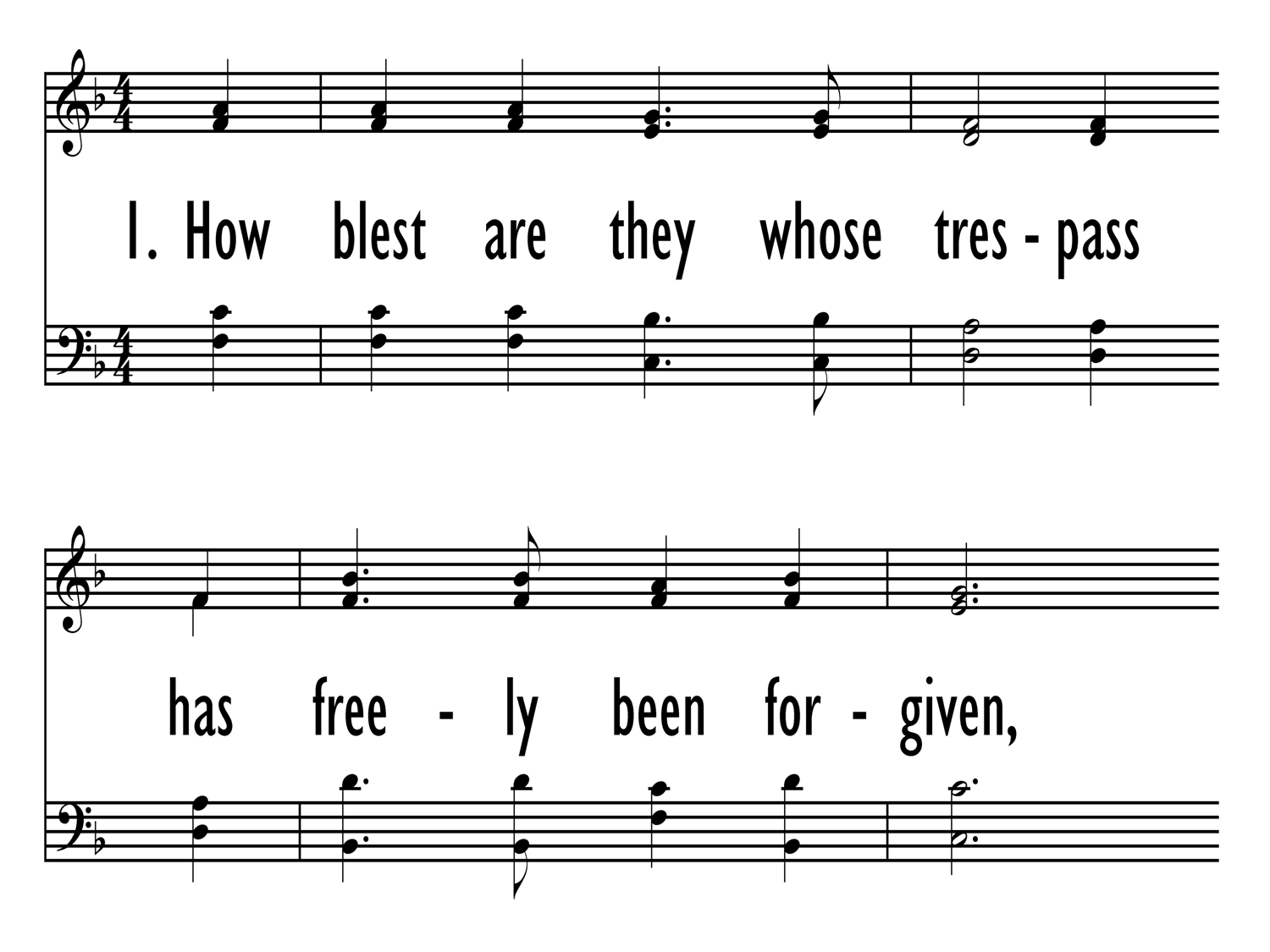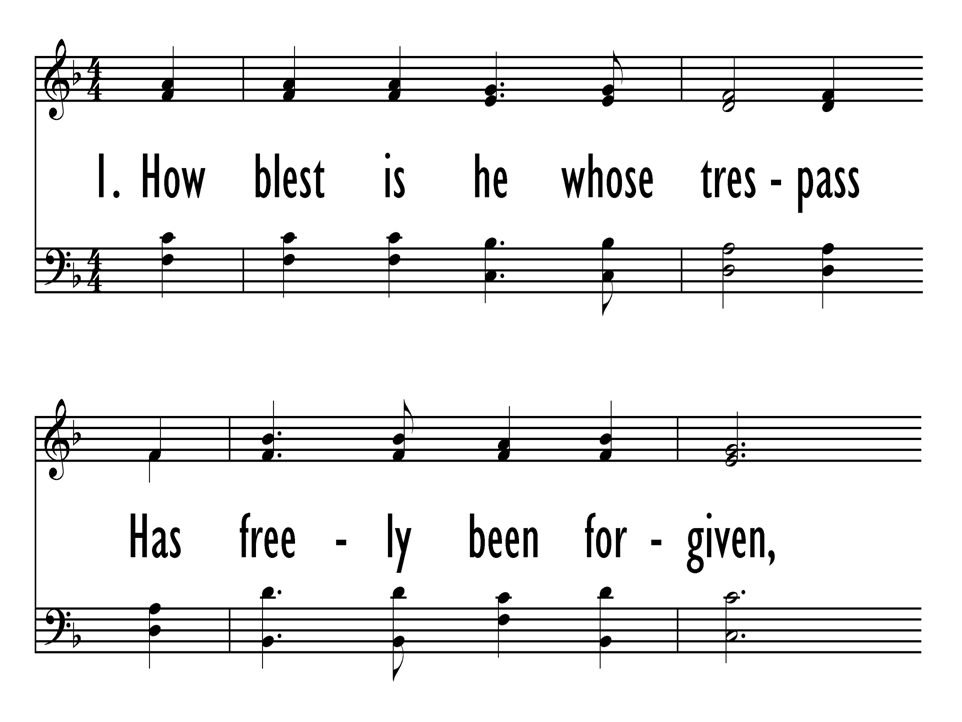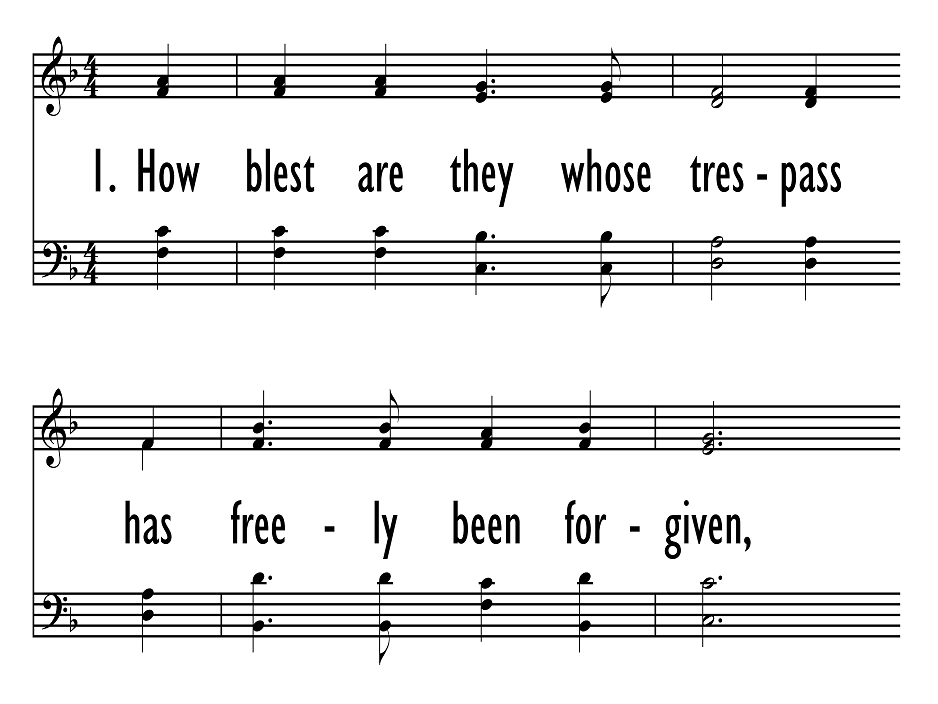- |
User Links
How Blest Are They Whose Trespass
Hymn Information
- First Line
- How blest are they whose trespass
- Text Source
- <cite>Psalter</cite>, 1912, alt.
- Tune Name
- RUTHERFORD
- Composer
- Chrétien Urhan (1834)
- Arranger
- Edward F. Rimbault (1867)
- Topic
- Repentance · Elements of Worship: Forgiviness and Grace
Copyright Information
- Text Copyright
- Public Domain
- Tune Copyright
- Public Domain
- Reprint/Projection Information
- Words and Music: The Words and Music are in the Public Domain; you do not need permission to project or reprint the Words and Music.
Full Text
Scripture References
Thematically related:
- st. 1 =
- st. 2 =
- st. 3 =
- st. 4 =
- st. 5 =
Further Reflections on Scripture References
Psalm 32 is traditionally considered a penitential psalm (along with 6, 38, 51, 102, 130, and 143). In the sequence of spiritual experience it follows the situation depicted in Psalm 51, the great plea for forgiveness. That psalm's traditional association with David's sin against Uriah, together with Psalm 32's reference to delayed confession, has suggested a historical link between the two. The psalm's thematic movement is noteworthy and is well represented in the versification, which is slightly altered from that of the 1912 Psalter.
The psalm begins with a testimony to the blessedness of those forgiven by God (st. 1). Retracing the spiritual movement from stubbornly denying sin to experiencing the joy of God's forgiveness (st. 2), the psalm exhorts all the godly to faithfully rely on God and reaffirms the LORD as refuge and hiding place (st. 3). Next God speaks, instructing the saints in godly obedience (st. 4). The psalm then contrasts the lot of the wicked with that of those who trust in God, and it closes with a call to the righteous to rejoice in God for his unfailing mercies (st. 5).
Bert Polman, Psalter Hymnal Handbook
Confessions and Statements of Faith References
Further Reflections on Confessions and Statements of Faith References
When we receive God’s pardon, we find ourselves at peace with him and at rest again. When the benefits of Christ are made ours, “They are more than enough to absolve us of our sins” and we need no longer look “for anything apart from him” (Belgic Confession, Article 22). We have “freedom from sin’s dominion” (Our World Belongs to God, paragraph 25) and we understand that we are “set free from all [our] sins and misery…” (Heidelberg Catechism, Lord’s Day 1, Question and Answer 2). We are “righteous before God and heir to everlasting life” (Heidelberg Catechism, Lord’s Day 23, Question and Answer 59).
How Blest Are They Whose Trespass
Additional Prayers
How Blest Are They Whose Trespass
Tune Information
- Name
- RUTHERFORD
- Key
- F Major
- Meter
- 7.6.7.6 D


 My Starred Hymns
My Starred Hymns






